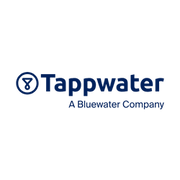Written by Magnus Jern
We are often asked if tap water, or more specifically, is tap water safe for babies?
As parents, we are all super concerned about the well-being of our little ones. Two of the co-founders of Tapp Water recently became parents themselves and spent a lot of time researching this topic before making a decision. In this article, we will share our research and conclusion.
Please note that babies under 6 months should not drink tap water, so this article refers to water used for baby formula and drinking water for babies over 6 months.
1. Why do we boil water?
Babies have immature immune systems, so we want to make sure that your baby is not exposed to bacteria unnecessarily in the first 6 months.
So there are two reasons to boil water:
a) Neither tap water nor bottled water is sterile directly from the source.
b) Infant formula is not sterile. Even if cans and packets of formula are sealed, they can still contain bacteria.
By boiling the water for 1-3 minutes, you can be sure that the bacteria are gone. Adding boiled water to the formula, according to some sources, also means that the formula will be safer to consume.
Boiling water does not remove other contaminants such as lead, nitrates, microplastics or substances commonly added to water including chlorine, chloramine or fluoride.
2. Is your tap water safe to drink?
The quality of drinking water depends on the location. In most of Europe and many other countries around the world, public tap water is safe to drink after boiling, but you never know for sure.
Recent incidents involving lead in Flint, Michigan, and PFOAs in the Veneto region of Italy show that water can be contaminated even when local governments report it as safe.
Another problem is newly identified contaminants, such as microplastics found in more than 80% of all tap water. We simply don’t yet know what the impact is on human health, but we do know that it is harmful to microorganisms.
So is tap water safe for babies and milk for babies?
For now, experts say tap water is safe for babies. The NHS in the UK, as well as most other health organisations in Europe, recommend tap water over bottled water for babies.
"Bottled water is not recommended for adding to baby formula food for your baby. This is because it is not usually sterile (free from bacteria) and may contain too much salt (sodium) or sulphate." - Source: NHS website
In Spain, the Scientific Committee of the Spanish Agency for Consumer Affairs and Food Safety recently proposed that "Suitable for the preparation of baby food and baby formula":
It must comply with the specifications relating to the chemical parameters of mineral water (see Annex IV, paragraph 1, Part B
of Royal Decree 1798/2010 and Regulation (EU) No. 115/2010)
The organoleptic and purity conditions specified in Annex I of Royal Decree 1798/2010.
The following chemical reference parameters must be taken into account: boron (0.5 mg/l), calcium (150 mg/l), cyanides (10 µg/l), chloride (100 mg/l), CO2 (250 mg/l), copper (0.2 mg/l), chromium (5 µg/l), fluorine (0. 5 mg/l), magnesium (50 mg/l), manganese (50 µg/l), nitrate (10 mg/l), nickel (20 µg/l), dry residue (1,000 mg/l), sodium (100 mg/l), sulfates (200 mg/l), uranium (2 µg/l) and zinc (0.1 mg/l).
To see if your tap water is safe for babies, check your local water against our Water Quality Database and compare it to the values above.
3. Is bottled water safer than tap water for babies?
The simple answer is no. Bottled water can contain too much sodium or sulfates, and it may also contain lead, nitrates, or other harmful contaminants, since quality testing is not as frequent as for tap water. It may also contain bacteria, since it is not sterile.
Additionally, 92% of bottled water was found to contain microplastics in a recent test conducted by OrbsMedia. As noted above, we don’t yet know what the human impact is, but you might not want to test your luck with a newborn.
So, avoid using bottled water for your baby if you can and if you have to use it, then make sure the contents are safe and that it is boiled first.
4. What type of water filter do I need for babies?
As mentioned above, there are risks with tap water, although these are currently perceived to be very low. An affordable, high-quality water filter will reduce the risk to your baby. But make sure you use the right type of filter.
Here are some simple guidelines:
- In most cases a carbon block filter installed on the tap, under the sink or as a bottle is the best option.
- Verify that the filter is tested to remove/reduce common substances and contaminants such as chlorine, lead, nitrates, fluoride and microplastics
- Make sure the filter is independently tested by a certified laboratory
- Make sure it is properly maintained (filters changed on time) otherwise you could be contaminating the water!
- And make sure you boil your water for the first 6 months, even if you use a water filter.
Conclusion - Is filtered tap water safe for babies?
There is no absolute right or wrong. But after extensive research and analysis, we have decided that tap water is safe for our little ones, but that filtered tap water is even safer. For the past 12 months, we have been using filtered tap water with TAPP 2 every day and our babies are healthy and happy.
Whatever your choice, we wish you and your loved ones the best in terms of health and happiness!
Note: Our research has concluded that filtered tap water is safe for babies. However, make sure your water is safe to drink to begin with. Sterile liquid baby formula is recommended for babies in high-risk situations (if babies are not breastfeeding), especially for premature babies in the neonatal intensive care unit.
